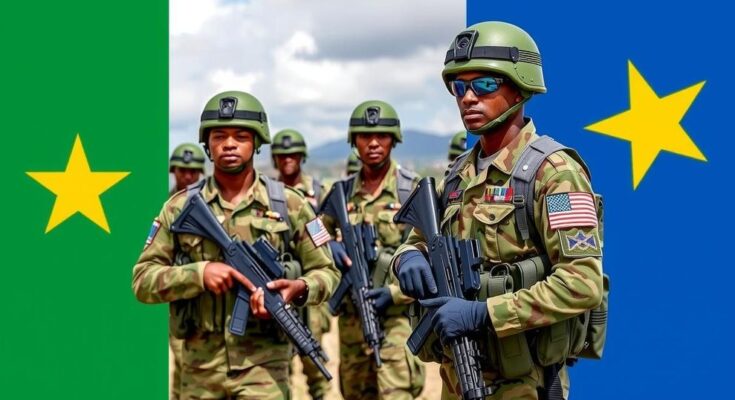The United States is advocating for the transformation of the Kenya-led multinational force in Haiti into a U.N. peacekeeping mission, in response to escalating gang violence and security concerns in Port-au-Prince. The proposed transition seeks to ensure consistent funding and support for the beleaguered Haitian national police, but faces international objections and significant financial shortfalls.
The United States has intensified its efforts to convert a Kenya-led multinational force in Haiti into a United Nations peacekeeping operation, driven by a surge in gang violence that recently compelled the suspension of all air traffic to the capital, Port-au-Prince. This initiative follows a proposal for a U.N. peacekeeping mission made in early September, aimed at ensuring consistent funding for the under-resourced force tasked with assisting Haiti’s national police in combating gang proliferation. Amid escalating violence, which has seen gangs exert formidable control over much of the capital, the U.S. has sought the consensus of the U.N. Security Council members to advance this resolution, encountering resistance from Russia and China. As gang violence escalated, culminating in the interim Haitian prime minister’s dismissal and subsequent gang attacks, the U.S. drafted a resolution requesting U.N. Secretary-General Antonio Guterres to expedite planning for the transition to a U.N. peacekeeping force. The proposed force aims to deploy around 2,500 international police, yet only a fraction, approximately 430 personnel, are currently present on the ground. This initiative underscores the critical nature of international assistance in managing Haiti’s deteriorating security landscape. Moreover, financial constraints continue to challenge the mission, with funding for the trust fund that supports the multinational force lagging significantly behind the $600 million annual cost estimated for full deployment. Despite a commitment of $300 million from the United States, international contributions remain vital to establish a capable peacekeeping presence. As gang violence rises, calls for a robust international response grow louder, reflecting a historical precedent of foreign interventions in Haiti, which have had mixed receptions among the Haitian population, marked by previous criticisms of U.N. actions in the country.
Haiti has been experiencing a significant increase in gang violence, particularly following the assassination of President Jovenel Moïse in 2021. The gangs now control a substantial portion of the capital, Port-au-Prince, leading to heightened calls for international intervention. The United States has accordingly proposed the transformation of a multinational force, led by Kenya, into a U.N.-backed peacekeeping mission to enhance the support provided to Haiti’s national police. Previous peacekeeping missions have encountered various challenges, including allegations of misconduct and logistical deficiencies, which now influence contemporary considerations of international assistance.
The United States’ push to transition the Kenya-led force in Haiti to a U.N. peacekeeping operation reflects a urgent response to escalated gang violence in the country. While the U.S. has laid the groundwork for this transformation through a draft resolution, challenges remain amidst geopolitical pushback and funding shortages. Ultimately, the success of such an endeavor will depend on international cooperation and the ability to address both funding and operational concerns in the context of Haiti’s pressing security crisis.
Original Source: www.military.com




